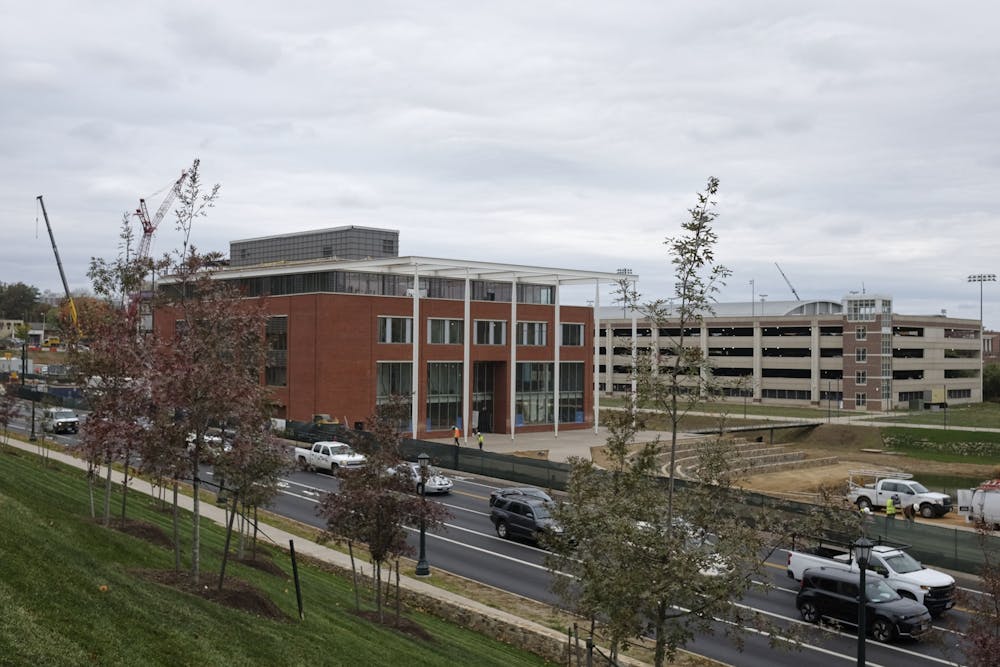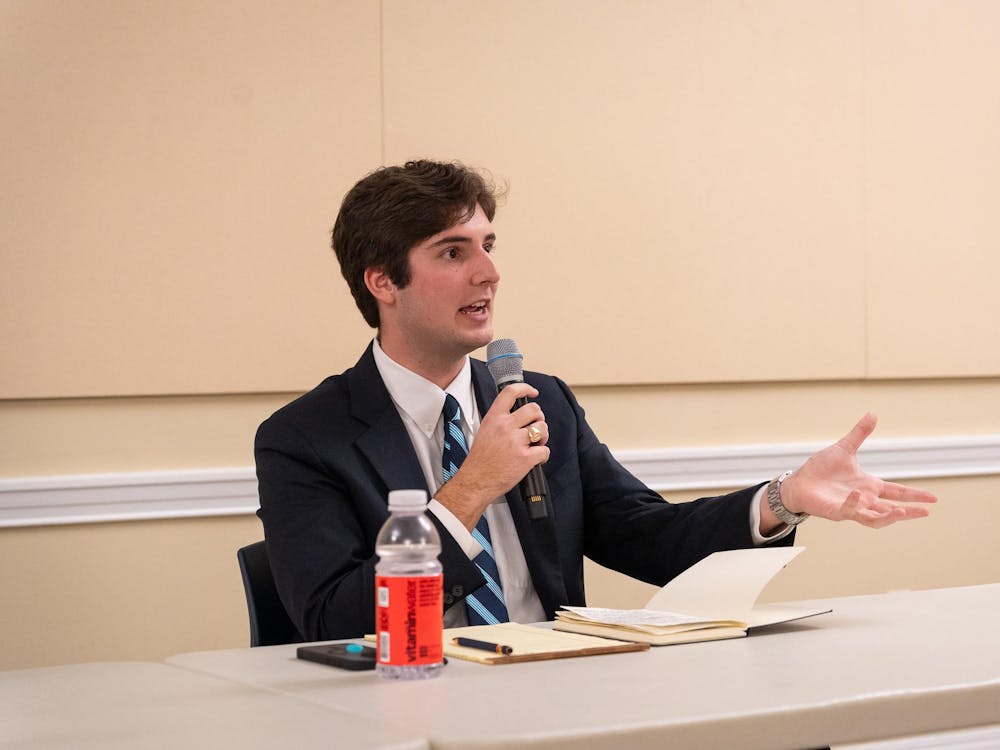The U.Va. Futures Initiative, a program that will analyze emerging technologies such as generative artificial intelligence that could alter the field of higher education in the coming years, is gearing up for a number of projects that are meant to advise University policy. Led by administrators from across the University’s different schools, the group will work over the next year to compile a list of recommendations to help the University prepare for changes in academia over the next 10 years.
The initiative was announced at Datapalooza 2023, an annual data science research conference hosted by the University’s School of Data Science. Philip Bourne, Futures Initiative co-founder and dean of the School of Data Science, and Ian Baucom, executive vice president and provost at the University, announced the initiative during a panel.
The Futures Initiative Group aims to send a report with recommendations on how the University can prepare for changes in higher education to the University administration in the next year, as well as host a series of events involving the University community. Some of these events include a podcast series, guest lectures, panels and town hall discussions. Guest speakers will be from a range of fields, including business, science and college administration.
The first episode of the Futures Initiative podcast series will bring in a range of professionals from different industries as guests. It’s slated to be recorded Nov. 30 and released as part of the Hoos in STEM podcast.
In an interview with The Cavalier Daily, Bourne said the accelerating rate of technological developments within higher education, as shown by the increase of A.I. popularity over the past year, was a primary reason for the creation of the initiative.
“[The Initiative’s goal is] to be actionary rather than reactionary,” Bourne said. “It’s already taken on a much broader set of people across Grounds and beyond to have a conversation about how higher ed will likely change, and how we should respond to it now rather than after these changes in technology.”
One such change occurred in November 2022 with the advent of ChatGPT and other large language models, which Bourne said prompted the University to consider how to better anticipate technological changes in the future. The presence of generative A.I. language models at the University has prompted many discussions about academic integrity and how use of A.I. might relate to the honor code.
One way the University has attempted to address the technological advance of A.I is with a Generative A.I. Task Force, which has hosted a series of town halls to collect input on the topic from the University community. As of now, the administration has not announced any University-wide policies concerning generative A.I., leaving its use in the classroom up to the discretion of professors.
Ken Ono, Futures Initiative co-founder and STEM advisor to the Provost, is responsible for overseeing STEM-related initiatives at the University. He said that the success of the Futures Initiative relies on input from students, professors, and policymakers alike. Ono added that while the Futures Initiative was only recently announced, talks to create it have been underway since early 2023, spearheaded by himself, Bourne and Acampora.
Christa Acampora, Futures Initiative co-founder and dean of the College of Arts and Sciences, said that the initiative’s objective of identifying needs in academia and beyond aligns with the 2030 Plan, a set of goals and initiatives designed to make the University the best public university by the end of the decade.
“President Ryan’s vision of a great and good university is a university that has real impact and is responsive to real needs,” Acampora said. “And so, [identifying] those needs is even more important.”







